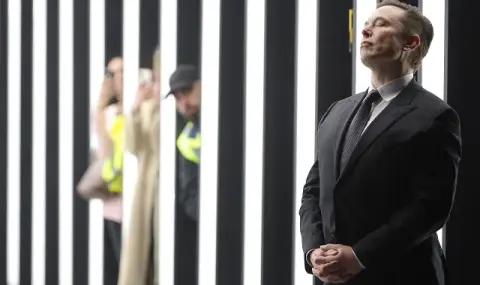Elon Musk has a huge business empire. But apparently this is not enough for him. The richest man in the world is backing Donald Trump's campaign with millions. He is said to have even had contacts with Putin. What is Musk's goal?
Apparently for the richest man on the planet, his own business empire just isn't enough for him. Elon Musk, owner of some of the most popular companies, is increasingly entering the world of politics. In the days leading up to the US presidential election, Musk has been a key supporter of Republican candidate Donald Trump, who has promised him a prominent role in his administration if he wins. It is not the first time Musk, 53, has used his influence to interfere in the political debate. He has done it in other countries too - from Brazil to Germany.
Musk is one of those private tech entrepreneurs increasingly exerting their power over decisions traditionally made by governments. Digital rights experts are worried. "The technologies that Musk works with are critical. And the companies he owns are extremely influential and key in terms of access to information and geopolitics," says Marietta Schaake. She is a fellow at Stanford University's Cyberpolicy Center and the author of the book "The Technological Coup: How to Save Democracy from Silicon Valley". "Musk doesn't run these companies with the idea of them simply being as successful as possible. He uses them as a tool to achieve his desires," says the expert.
From "moderate" to hardliner
South African-born entrepreneur Elon Musk founded his first company in the mid-1990s. Since then, he has created a number of successful companies and amassed a fortune estimated at more than US$243 billion (€224 billion). His talent for turning start-ups into leading global technology companies gives him control over key digital infrastructures and increases his political influence.
The American space program NASA is already working with Musk's aerospace company "SpaceX" for launching its satellites. And Starlink, a subsidiary of SpaceX, provides Internet connection even to the most remote places in the world. The communications of "Starlink" have become an indispensable tool for armies in conflict zones from Ukraine to the Gaza Strip.
Musk, Putin and their alleged contacts
An investigation by the American "Wall Street Journal" shows the geopolitical influence that comes with controlling these technologies: According to the paper, Musk has been in contact with Russian President Vladimir Putin since late 2022. Among other things, the American media claimed that Putin asked Musk not to activate the satellite communication system "Starlink" in Taiwan. Thus, the Russian president wanted to do a favor to the Chinese head of state Xi Jinping - the two maintain close contact. Musk has not yet commented on the information of the "Wall Street Journal".
With the acquisition of X (formerly Twitter) in 2022, Elon Musk also took control of one of the most influential social platforms today. At the same time, the entrepreneur who once described himself as a "moderate" has increasingly sided with conservative hardliners. He openly opposes the Democratic Party in the USA and the liberal ideas that he considers harmful to society.
Unconventional approach
On the eve of the US election, Musk's political engagement has reached new heights. Shortly after the assassination attempt on Trump in mid-July, he publicly announced his support for the Republican. Between July and mid-October of this year, Musk donated almost $119 million to support Trump.
Musk recently offered cash rewards to registered voters in the so-called "wavering" states. All they had to do was sign a petition to support free speech and gun rights. Each day until the election, one of the petition signers will be chosen by lottery and awarded one million dollars. According to the US Department of Justice, this campaign may be violating federal law.
Such overt political engagement is unusual for America's business elite. "The relationship between Musk and Trump reveals a level of influence that most business magnates prefer to keep under wraps," Schaeke said. "Musk's actions seem to indicate that he believes he can do whatever he wants," she added, referring to Musk's attempts to interfere in the political debates of other countries.
What if Trump wins
It's becoming increasingly clear that Musk's efforts are also apparently aimed at gaining more access and influence in the event Trump is re-elected in November. "It is entirely possible that he will demand certain foreign policy commitments from Trump in the interest of his companies," says Schaeke.
There was a foreshadowing of this in late September, when Trump's vice-presidential nominee JD Vance hinted that the US might reconsider its support for NATO. This could happen if the European Union imposes strict regulations on social media platforms, in particular Musk's X. The EU is currently investigating the extent to which X breached the new rules for online platforms, which could lead to significant fines. This concentration of power over critical digital infrastructure is a threat to democracy, warns digital law expert Schaake. "Musk is unpredictable. Its positions can change overnight. And if when someone who controls important products and infrastructures changes their mind, there can be serious consequences."
